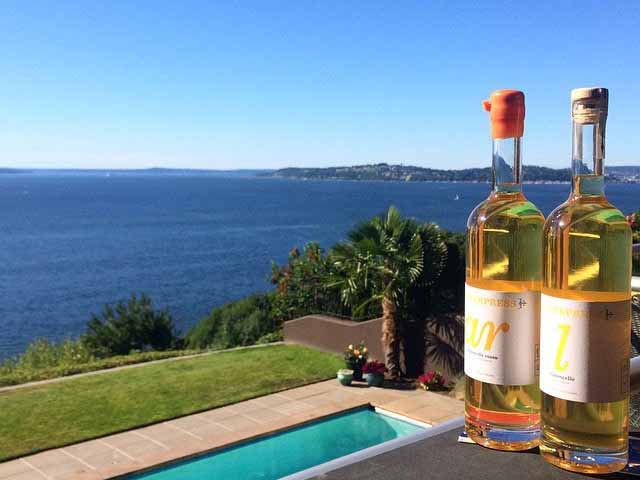
You know that feeling when you have a revelatory culinary experience? That happened to me when I tried the limoncello from a small distillery in Seattle that makes a limited selection of spirits and Italian liqueurs using mostly locally-sourced raw ingredients. It’s subtly sweet and doesn’t have that typical burn on the way down. I would go as far as to say that it should win an award for the best limoncello ever, but let’s just say it’s definitely the best in the Pacific Northwest. I sat down with the owner of Letterpress Distilling and his partner for an interview to learn how they make such damn good spirits and what fuels their commitment to sustainable distilling.
Interview with Letterpress Distilling
If you’re into ethically-made liqueurs, listen up.
You might remember I created a yummy salmon recipe using limoncello a few months ago. That recipe was inspired by a distillery tour I took at Letterpress Distilling in SODO. Owner Skip Tognetti and partner Liz Lyman invited me for a tour to learn more about their vodka and limoncello-making process. I was skeptical, as I always hated limoncello, but I went anyway for the experience.
That’s the moment I was converted to a limoncello lover.
Letterpress Distilling’s limoncello is different from the cloyingly sweet, artificial-tasting ones I’ve had before. The tour helped me realize the secret to good limoncello starts before the liqueur is even made.
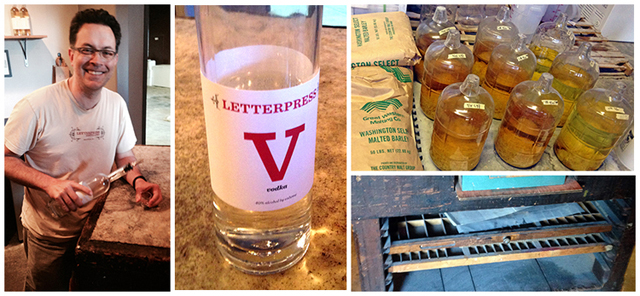
How did you get into the distilling business?
Skip: I’ve been around wine and spirits my whole life. I’m Italian and so I visited Rome often growing up. I experienced wine and the after-dinner drink early on because alcohol was never something forbidden, it was something embraced. As a result, I learned to love wine very early. Also, my grandfather owned a liquor store in Rome and I was constantly watching him in his element.
I ended up coincidentally going to college in Walla Walla. At the time there were only, like, five wineries and no one had ever heard of the now-famous wine region. When I was junior in college I worked at Woodward Canyon (editor’s note: one of the wineries recommended in our Walla Walla travel guide!). That’s what instilled this love for making stuff and putting it in front of people so they can enjoy it.
But after college I found myself in regular day jobs. My last job was completely miserable, as in it affected my health. That job is what gave me the motivation to work for myself.
So how long have you been in the distilling business?
Skip: It was a long time coming before we made our first bottle. The idea to start distilling got into my head in early 2009. We incorporated in early 2010 and moved into our current distilling space in SODO in February 2011. But our first bottle wasn’t produced until December 2012.
[Working at Woodward Canyon winery] instilled this love for making stuff and putting it in front of people so they can enjoy it.”
What was the hardest part about getting started?
Skip: I’d like to say it was learning how to distill. But honestly? It was navigating city permits and the legal process of setting up shop in a highly-regulated industry!
Your limoncello tastes better. What makes it special?
Skip: It’s all about sourcing for us. There’s a clause in the original craft distiller’s license from back in 2008 that has a line that really stuck with me: “Distilling is an agricultural process.”
If you look back at the history of distilling, it was all about having too much of an ingredient and figuring out how to preserve it. I wanted this emphasis on agriculture to be as true as possible with our products. In fact, I could go buy my grain from a big grain co-op, but I want the grain to come from a farm and I want to know the farmer. I want to pick up the grain and see the guy who grows the grain loading my truck. I like that relationship.
So what’s your criteria for sourcing?
Skip: It’s got to be small farms as close to the distillery as possible. For example, our furthest wheat farmer is only 70 miles away. The only ingredient we don’t get in Washington is our lemons, since we don’t grow them well here. But they come from the closest place in California we could find.
The farms also have to create ingredients that highlight the region as much as possible. I also want to be able to meet the grower and build a relationship with him.
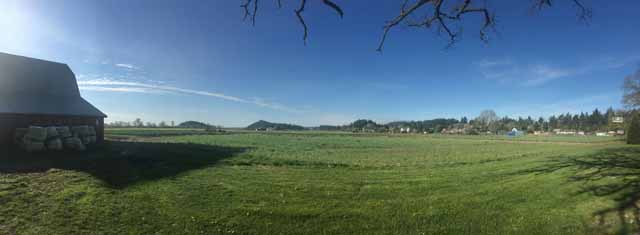
Take us through how your liqueurs are made.
Skip: Our distilling starts with making our own vodka.
We do this because we want to control the taste of our liqueurs and ensure that we make our vodka 100% from Washington-grown ingredients. We strive to make a sipping vodka that is sweet with some vanilla notes (editor’s note: I tried it. It’s much more complex than your typical bland vodka that burns all the way down!).
The vodka distilling process starts very much like making beer: you create a mash and then ferment it. Distilling begins when you take that fermented mash and put it through a distilling process to remove impurities.
You can think of it as there being a “head,” “heart,” and “tail” that gets separated.
The “head” is removed because it includes methanol, which is the stuff that can make you go blind. The “tail” is also removed. This isn’t bad for you, per say, but it has a funky smell. The “heart” is the ethanol that we need to make vodka. To put in perspective just how much “heart” you’re getting, it takes about 250 gallons of fermented mash (which is essentially just a wheat beer) to produce 7-8 gallons of ethanol.
I could go buy my grain from a big grain co-op, but I want the grain to come from a farm and I want to know the farmer. I want to pick up the grain and see the guy who grows the grain loading my truck.”
Once we’re done distilling the vodka, we turn it into limoncello.
People tend to think limoncello is tart because of citric acid, but it should taste tart from lemons! We get our lemons from California and zest one lemon at a time. Each batch (editor’s note: one batch is held in a container a bit bigger than a water cooler jug) makes two bottles and it has about 1.5 pounds of zest in it. It takes about 130 lemons to get that much zest. When all is said and done, each bottle has about 3-4 lemons in it. Obviously, making limoncello this way is a labor of love.
Once we get the vodka in with the zest, it sits for about five weeks.
We give it a good swirl once a day but otherwise, it’s a lot of waiting. When it’s ready, we add honey and water. We don’t use any artificial sweeteners or dyes. Rather we use honey to sweeten our vodka. We get blackberry honey from right here in Washington. We prefer berry over orange blossom honey because it’s subtly sweeter and rounder. The honey we use is from the Moses Lake and Granite Falls areas here in Washington.
Most people don’t use honey because cold temperatures cause honey proteins to show, which makes for a slightly less beautiful finished product. To get rid of those proteins, we freeze the limoncello in batches and siphon clear limoncello underneath the proteins.
I hand check and stamp all the bottles we make.
The resulting limoncello is 100% natural and we do everything we can to reuse the byproducts of our distilling process. We compost the zest, donate our used grains to pig farmers, use the acetone that comes out of vodka distilling for cleaning, and use another byproduct of the vodka distilling process for a started to make a new batch.
What are you most proud of?
Skip: I’m most proud of the fact that people I respect have a genuine respect for what I do. I’m lucky to count among my friends some James Beard-nominated chefs who have become fans of what we do. That’s a huge honor and extremely flattering.
The original craft distiller’s license has a line that really stuck with me: ‘Distilling is an agricultural process.’ If you look back at the history of distilling, it was all about having too much of an ingredient and figuring out how to preserve it. I wanted this emphasis on agriculture to be as true as possible with our products.”
What’s next for Letterpress Distilling?
Skip: We want to stay focused on Italian liqueur. We’ll be branching out and creating our first amaro (editor’s note: this is a typically herbaceous after-dinner digestive liqueur). We’ll also hopefully create a second fall seasonal. Our spring blood orange liqueur is incredibly popular, so hopefully we can make something as equally satisfying for the fall months.
However, I don’t want to have 15 products. I want to stay focused so we can concentrate on doing less really, really well.
Who are some other area makers you admire?
Skip: In the distilling business, I have great respect for almost everyone who is making great products, particularly those making them from scratch. I love people who put all their passion into one thing because I believe there’s more than one respectable way to make something successful.
More broadly, Mike Easton of Il Corvo. I’m obsessed with everything he does. I love his food and love what he’s been able to achieve professionally, which is to make a nice living having two restaurants that he started on a relatively small budget open for lunch only so he has time to focus on his family and hobbies.
I’m also fascinated by what the Josh Henderson of the Huxley Wallace Collective is doing. His team is sourcing a lot of local things and they’ve hiring great people. I find the whole thing pretty fascinating.
Someone has 24 hours in Seattle. What should they do?
Skip: I want to send everyone to Spinasse (editor’s note: I second this!). I think it’s great, particularly the cipollini (editor’s note: these are small onions. The rabbit meatballs and ragu are also amazing).
I also want to introduce everyone to Il Corvo. It’s a perfect portion of well-made pasta for $9.
I love Canlis. If you have the money, just go for the experience. But also find some of Seattle’s simple eats. Go get pho. What’s more Seattle than a bowl of pho? Outside of New Orleans, Seattle is the only place in the US that has a big Vietnamese population who helped make pho integral to our dining culture.
I’d also ask visitors what they like to drink. Go to Canon if you want a high-end cocktail experience. Liberty is great in that it’s a neighborhood bar with great cocktails and Rumba has an amazing rum/tiki selection.
(editor’s note: okay, thumbs up to everything. Skip has great taste!)
Are you good at making anything else?
Skip: In general, I’m a compulsive maker of things. If I find something I really like, I’ll try to figure out how to make it better. I’ve been a huge pizza geek before it became a thing. I’ve been making pizza every week for 13 years, so I guess you could say I make a pretty good pizza.
[line]
Want ideas for ways to use limoncello besides sipping? Check out my salmon scampi recipe with limoncello sauce.
Want to learn more about Letterpress Distilling? You can follow their adventures on Facebook, Twitter, and Instagram, or check out their distilled products.
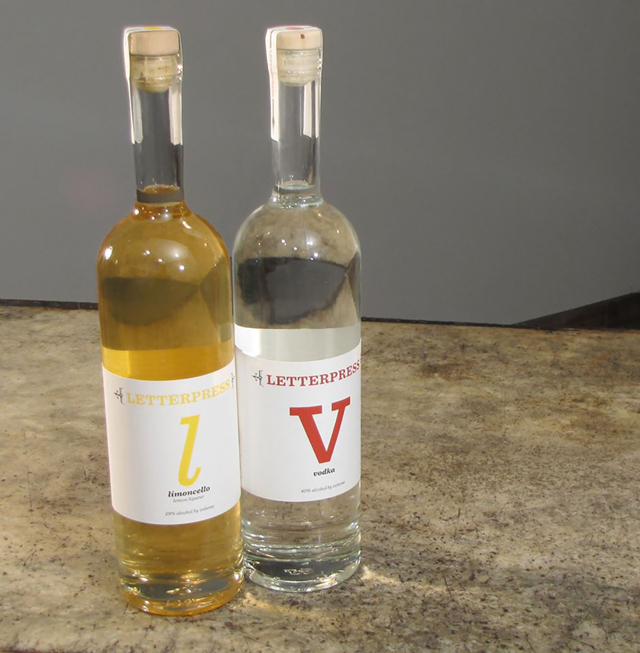
Disclaimer: This article is based off my own opinions. While I was invited to a distillery tour a few months ago, I was not asked to write an article. This interview was entirely my idea, as I think more people need to know about Letterpress Distilling!
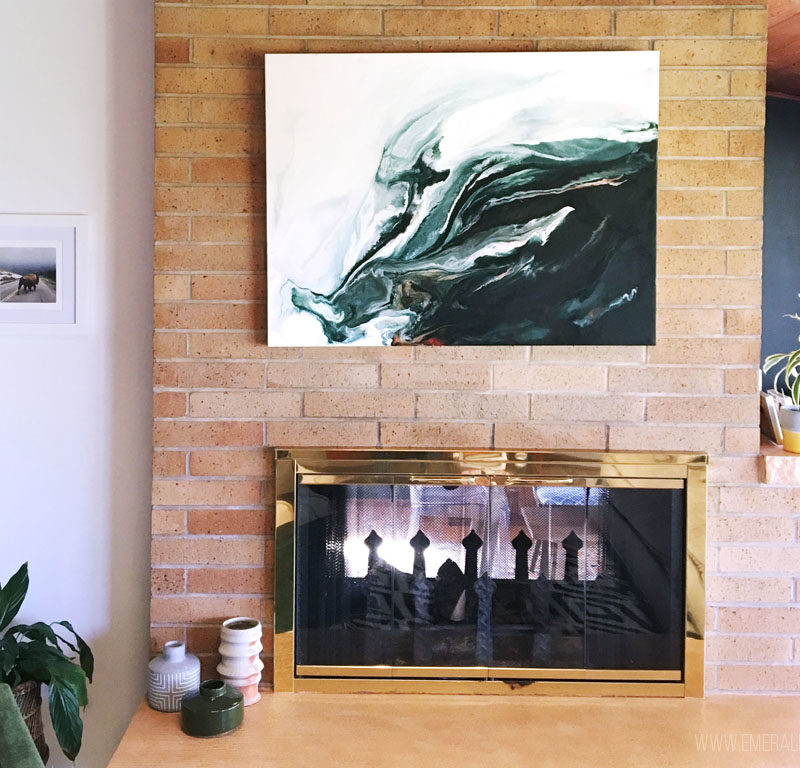

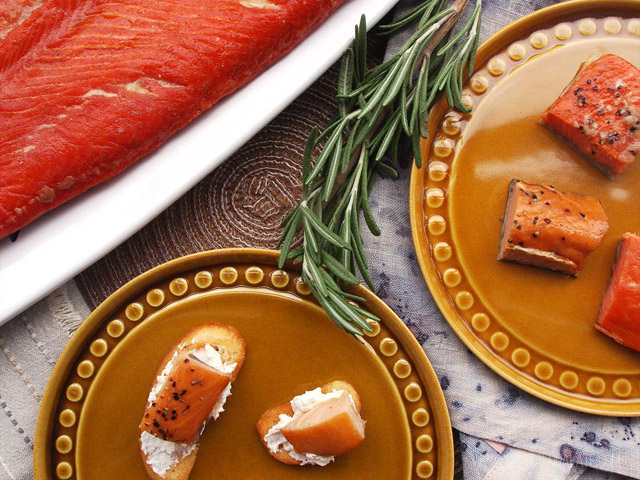
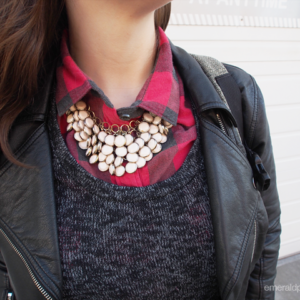
That sounds and looks delicious! Limoncello definitely seems like something I would like, the next time we have a visitor I know what will be on the list, thanks for sharing!
xx, Kusum | http://www.sveeteskapes.com
I’d love to hear how you like the limoncello, ladies!
Lawyers make everything difficult :). I’ll have to check out Spinasse when I’m in Seattle next! And find some Letterpress Limoncello!